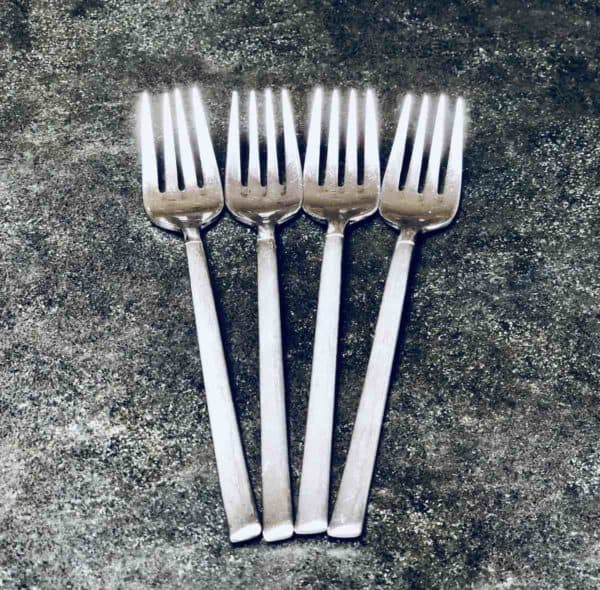 The San Francisco-based cryptocurrency exchange Kraken has begun supporting the “BSV” coin, a crypto token product of last Thursday’s contentious hard forking of Bitcoin Cash.
The San Francisco-based cryptocurrency exchange Kraken has begun supporting the “BSV” coin, a crypto token product of last Thursday’s contentious hard forking of Bitcoin Cash.
Bitcoin Cash is itself a “fork” or code-splice/copy of Bitcoin created by early Bitcoin champion Roger Ver and allies, who felt “Bitcoin Core” was taking Bitcoin in a direction its inventor would have disagreed with.
At the time, Ver and allies Jihan Wu (founder of the world’s largest crypto-mining conglomerate, Bitmain) and Craig Wright (dubbed “Faketoshi” for claiming to be the elusive inventor of Bitcoin, Satoshi Nakamoto) believed the best way to scale Bitcoin and accommodate more users, including retail, was to increase the size of the blocks of data processed by miners in the network.
“Bitcoin Core,” for its part, argued that increased block size would favour large miners capable of hosting more data in their nodes. They argued that this would further squeeze out the little guy mining or hosting a node of the ledger and would contributing to network centralization, thus making it vulnerable to attack by government or other nefarious actors.
“Bitcoin Core” also argued that large blocks are a temporary measure to scale Bitcoin that would not last, and they began working on “off-chain” scaling solutions that would process more transactions on “secondary layers” before settling the sum of them on the main Bitcoin blockchain.
Fast forward 15 months later, and the fractious Bitcoin Cash group has fractured again. Avid crypto coiners gathered around YouTube last week to watch various live streams documenting the resulting “BCash” code split.
When an established blockchain is “forked” or split into two or more chains, trading of resulting tokens or coins is typically suspended until both networks stabilize.
Trading during the early days of a fork can result in one’s coins being “replayed” or stolen and spent on the new chain by a bad actor.
Prices of a coin with an approaching fork often rise just before because holders of the original coin are usually awarded the same number of coins on the new chain because both chains share the same root.
Many crypto traders, therefore, often buy up coins just before a fork so they can double their holdings after the fork. Many may also buy up coins so they can collect, dump and thus sabotage the new coin once it is launched.
Kraken announced in a blog post-November 18th that it has started “supporting” the new version of Bitcoin Cash, BSV, with reservations.
First, the exchange warns in bold:
“Bitcoin SV does NOT meet Kraken’s usual listing requirements. It should be seen as an extremely high risk investment. There are many red flags that traders should be aware of.”
Red flags include the fact that the coin is not (yet) supported by any wallet that protects against replays.
As well, although both coin’s progress can be tracked at https://cash.coin.dance/, “no major block explorers” are tracking the coin, meaning the health of the network cannot be definitively verified.
In order to weather the fork, during which various participants have threatened to attack one another, each network may be subsidizing its miners in order to keep them loyal. Other miners may be operating at a loss, which could compromise their loyalty and possibly “incentivize” them to switch over to mining the more profitable coin.
At this point, that coin in Bitcoin Cash ABC (BCH on Kraken), which could perhaps be referred to as “Bitcoin Cash Core.”
A crypto network with fewer miners can be attacked by the miners of a larger network and be slowed down, have records damaged or have coins stolen or “double-spent.”
The fact that no known wallets have inbuilt replay protection for BSV means that relatively little liquidity may be available to people wanting to trade the coin, meaning people holding it could miss big price moves.
Kraken also notes that as part of the adversarial fork, “Some large holders have indicated they’d be dumping everything ASAP.”
As well, despite supporting the BSV product and preparing to allow trades, Kraken admits to having done, “…only very minimal code review.”
When the exchange determines that it is “safe,” it will allow trading between BSV and the Euro, USD and Bitcoin.
The exchange Poloniex announced on Twitter November 15th that it is already allowing trades of BSV.
We’ve finished converting all BCH balances to BCHABC and BCHSV. The BCH market is now disabled. BCHABC/BTC, BCHSV/BTC, BCHABC/USDC, and BCHSV/USDC markets are open. Deposits and withdrawals of BCHABC and BCHSV are still paused, and will remain paused until the networks stabilize.
— Poloniex Exchange (@Poloniex) November 15, 2018

